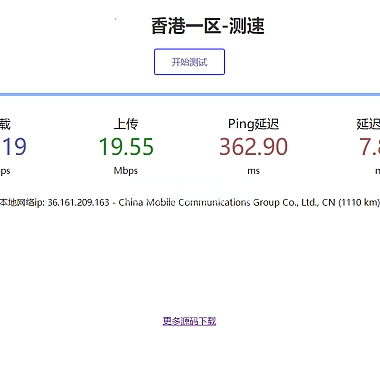nodejs获取连接到服务器的客户端ip
在Node.js中获取连接到服务器的客户端IP地址是一个常见的需求,尤其是在构建Web服务时。通常可以通过req.connection.remoteAddress或req.ip等方法来获取客户端的IP地址。几种解决方案,并提供相应的代码示例。
1. 使用原生HTTP模块
Node.js的原生HTTP模块提供了直接访问请求对象的功能,通过req.connection.remoteAddress可以获取客户端的IP地址。以下是具体实现:
javascript
const http = require('http');</p>
<p>const server = http.createServer((req, res) => {
// 获取客户端IP地址
const clientIp = req.connection.remoteAddress;</p>
<pre><code>res.writeHead(200, { 'Content-Type': 'text/plain' });
res.end(`Your IP address is: ${clientIp}`);
});
server.listen(3000, () => {
console.log('Server is running on port 3000');
});
注意:req.connection.remoteAddress返回的是客户端与服务器建立连接时使用的IP地址。如果服务器部署在反向代理(如Nginx)之后,可能会返回代理服务器的IP地址,而不是真实的客户端IP。
2. 处理反向代理的情况
当服务器部署在反向代理(如Nginx、Apache)之后,客户端的真实IP地址通常会通过X-Forwarded-For头传递。以下是处理这种情况的代码示例:
javascript
const http = require('http');</p>
<p>const server = http.createServer((req, res) => {
let clientIp;</p>
<pre><code>// 检查 X-Forwarded-For 头部
if (req.headers['x-forwarded-for']) {
// 取个IP地址作为客户端真实IP
clientIp = req.headers['x-forwarded-for'].split(',')[0].trim();
} else {
// 直接使用 remoteAddress
clientIp = req.connection.remoteAddress;
}
res.writeHead(200, { 'Content-Type': 'text/plain' });
res.end(`Your IP address is: ${clientIp}`);
});
server.listen(3000, () => {
console.log('Server is running on port 3000');
});
说明:X-Forwarded-For头部可能包含多个IP地址,它们是以逗号分隔的列表,个IP通常是客户端的真实IP地址。
3. 使用Express框架
如果你使用的是Express框架,可以通过req.ip或req.headers['x-forwarded-for']来获取客户端IP地址。以下是示例代码:
javascript
const express = require('express');
const app = express();</p>
<p>app.get('/', (req, res) => {
let clientIp;</p>
<pre><code>// Express 提供了 req.ip 属性
if (req.ip) {
clientIp = req.ip;
} else if (req.headers['x-forwarded-for']) {
// 如果有 X-Forwarded-For 头部
clientIp = req.headers['x-forwarded-for'].split(',')[0].trim();
} else {
clientIp = req.connection.remoteAddress;
}
res.send(`Your IP address is: ${clientIp}`);
});
app.listen(3000, () => {
console.log('Express server is running on port 3000');
});
注意:Express框架会自动解析X-Forwarded-For头部,并将其存储在req.ip中。在大多数情况下,直接使用req.ip即可。
4. 使用第三方库 `ipware`
为了更方便地处理复杂的IP地址解析逻辑,可以使用第三方库ipware。以下是如何安装和使用它的步骤:
安装 ipware
bash
npm install ipware
示例代码
javascript
const express = require('express');
const ipware = require('ipware')();
const app = express();</p>
<p>app.get('/', (req, res) => {
// 使用 ipware 解析客户端IP
const clientIpInfo = ipware.get_ip(req);
const clientIp = clientIpInfo.clientIp;</p>
<pre><code>res.send(`Your IP address is: ${clientIp}`);
});
app.listen(3000, () => {
console.log('Express server is running on port 3000');
});
优点:ipware能够处理复杂的IP解析场景,包括多层代理和IPv6支持。
5. 注意事项
- 安全性:不要完全信任
X-Forwarded-For头部,因为它可以被客户端伪造。确保你的服务器配置了可信的反向代理。 - IPv6支持:某些情况下,客户端IP可能是IPv6格式。需要根据实际需求进行处理。
- 本地测试:在本地测试时,
req.connection.remoteAddress可能会返回::1(表示本地回环地址),这在生产环境中不会出现。
通过以上几种方法,你可以轻松地在Node.js中获取连接到服务器的客户端IP地址。根据具体的项目需求选择合适的方式即可。











